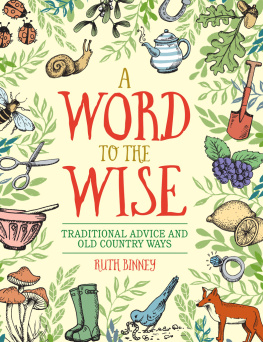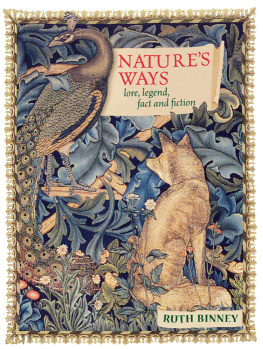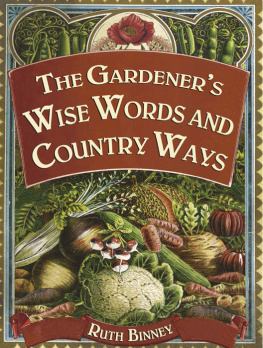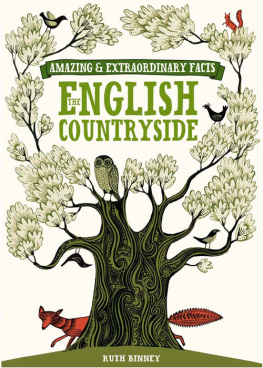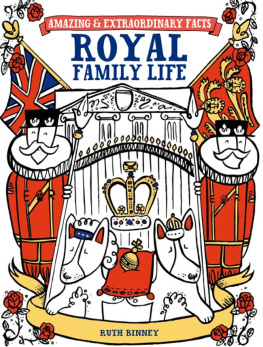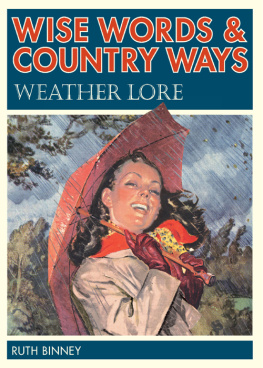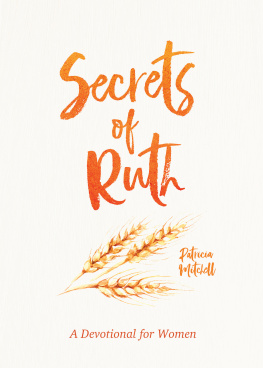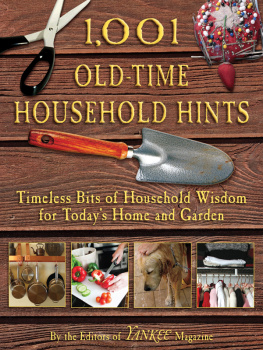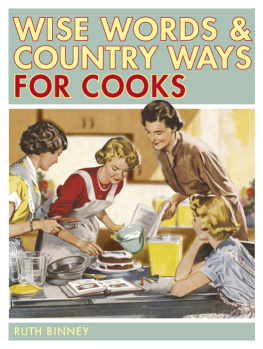A
WORD
to the
WISE
A
WORD
to the
WISE
TRADITIONAL ADVICE AND
OLD COUNTRY WAYS
RUTH BINNEY
DOVER PUBLICATIONS, INC.
Mineola, New York

Copyright
Copyright 2004, 2016 by Ruth Binney
All rights reserved.
Bibliographical Note
This Dover edition, first published in 2019, is an unabridged republication of the work originally printed by Rydon Publishing, West Sussex, England, in 2016.
International Standard Book Number
ISBN-13: 978-0-486-82873-2
ISBN-10: 0-486-82873-5
Manufactured in the United States by LSC Communications
82873501 2019
www.doverpublications.com

CONTENTS
INTRODUCTION

Every year on 22 December the day after the winter solstice I would sit at breakfast, waiting for my father, a physics teacher, to open his paper, look at the date and declare that as the days lengthen the cold strengthens. So began my interest in old sayings and in science. If we were out together on a winters night he would look for a ring round the moon as a sign of snow soon and he often related how, as a child of the Edwardian era, he would be given on his birthday a maxim to follow for the year ahead such as do your duty like a soldier and a man.

T he sayings in this book, collected in the years since my childhood (when we were allowed to have our hair washed only once a week and schools gave girls prizes for good deportment), relate closely to the business of everyday life, largely as it was lived before the days of modern conveniences, and how they relate to modern life and knowledge. They include advice on the practical necessities of cooking, gardening, keeping house and health, as well as proverbial wisdom concerning good behavior for children, adults, and life in general.

Many of the old adages that our grandparents believed in have since been proved true, although others, like putting butter on a burn, have been discredited. But it is probably no accident that many once-valuable items such as salt, eggs and silver recur in the old sayings, or that they have much to say about foretelling the weather. For in the days when most people made their living from the land, being in tune with nature could be vital to survival.
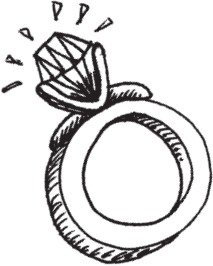

For the superstitious, there are dozens of old country sayings and traditions that relate to good luck, good health and finding a spouse, as well as to omens of disease, death and disaster. Almost everything was once invested with significance, from seeing a single magpie to the day of the week on which you did your washing or cut your nails.

In compiling this book I have used numerous sources old and new, but have drawn particularly on the 19th-century classic advice book Enquire Within, a bound-up collection of the magazine Home Chat for 1896, The Concise Household Encyclopedia of 1933 (discovered at a village fte) and, from America, The House and Home Practical Book, also from 1896. I have not, however, tested the old recipes included in the book, so they are used at your own risk.
Many thanks are due to the team at Rydon Publishing, and to my late husband, Donald, for his encouragement in the production of the original book. Together we spent many hours at secondhand bookshops and stalls at home, and in Boston and New York, as he helped me to unearth those invaluable nuggets of reference that have brought this book to life.
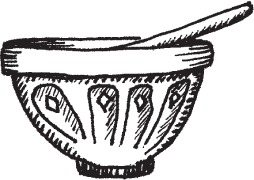
Ruth Binney
Dorchester, England, 2016
LIVING TOGETHER
Good luck in life and love, as well as wealth, health and happiness, are the things that we all desire, exactly as our forebears did. Hundreds of sayings relate to these universal concerns, many of them also advising on ways of keeping the wheels of friendship in particular, and society in general, well oiled. Many of these maxims involve superstitions charms and omens that touch every part of our lives, from day-to-day detail to the big events such as falling in love and marrying. Many also link to the annual round, punctuated by festivals and celebrations. Although these may have their roots in pagan customs, they also have strong connections with religion, as well as with maintaining good relationships with friends and neighbors.
Good advice on how to live your life, and the things you should value, comes from well-known sources such as the Bibles Book of Proverbs and the works of Shakespeare, but also from anonymous sages and, in more recent times, popular songs. While life today may be much more ordered and predictable than it was when many of these sayings originated, chance and superstition still play their parts which is why so many of us still fear bad luck if we walk under a ladder or break a mirror.
BLOW OUT YOUR BIRTHDAY CANDLES WITH ONE BREATH

This is the way, it is said, to make a secret wish come true, but to cry on your birthday is to cry all year. In celebrating birthdays the ancient Greeks honored the birthday of Artemis, goddess of the moon and fertility.
An iced sponge cake is the traditional childrens birthday cake. One recipe dating from 1921 suggests cutting a madeira cake into four layers and putting a different filling between each: strawberry jam, lemon curd and greengage jam.
T o celebrate the birthday of Artemis the Greeks would light candles on her altar, but her benign favors were granted only if these were blown out with one breath.
Birthdays were probably first celebrated in Egyptian and Persian households in the 5th century BC, but the birthday cakes and parties of modern times date back only as far as the 19th century. Even then children, while presented with modest gifts, were also treated to lessons in morality and good behavior. Typically, they would be given a saying or motto, such as Do your duty like a soldier and a man, or A friend in need is a friend indeed, to live up to in the year ahead.
The words of the song Happy Birthday to You, written by Clayton F. Summy in 1935, were not the first to be put with this tune. The song was originally called Good Morning to All and was written in the USA in 1893 by the teacher Patty Smith Hill. The music was composed by her sister Mildred J. Hill.
Next page
